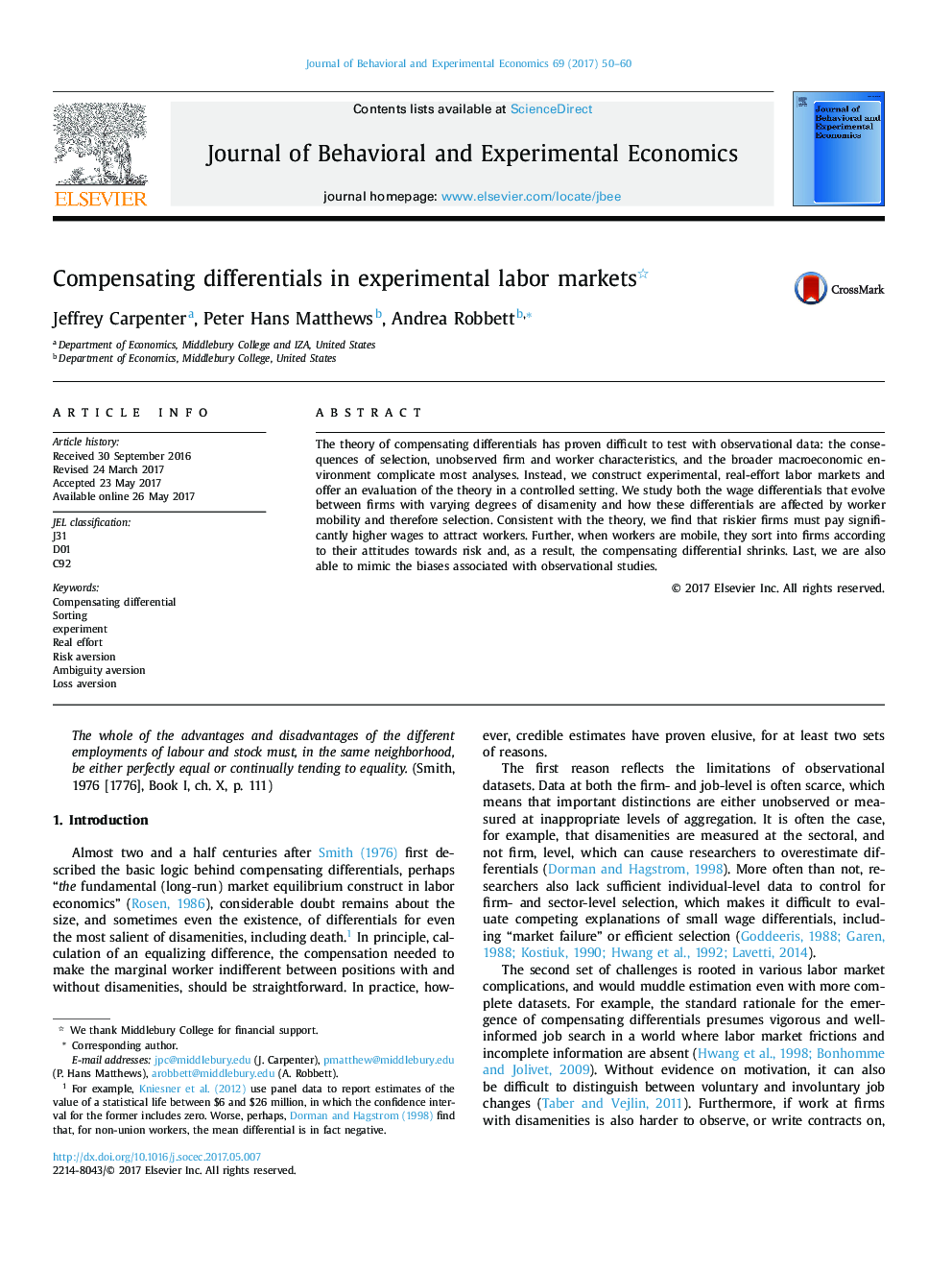| Article ID | Journal | Published Year | Pages | File Type |
|---|---|---|---|---|
| 5034120 | Journal of Behavioral and Experimental Economics | 2017 | 11 Pages |
â¢We construct experimental, real-effort labor markets and offer an evaluation of the theory of compensating differentials.â¢Consistent with the theory, we find that riskier firms must pay significantly higher wages to attract workers.â¢Further, when workers are mobile, they sort into firms according to their attitudes towards risk and, as a result, the compensating differential shrinks.â¢Last, we are also able to mimic the biases associated with observational studies, an underappreciated application of economic experiments.
The theory of compensating differentials has proven difficult to test with observational data: the consequences of selection, unobserved firm and worker characteristics, and the broader macroeconomic environment complicate most analyses. Instead, we construct experimental, real-effort labor markets and offer an evaluation of the theory in a controlled setting. We study both the wage differentials that evolve between firms with varying degrees of disamenity and how these differentials are affected by worker mobility and therefore selection. Consistent with the theory, we find that riskier firms must pay significantly higher wages to attract workers. Further, when workers are mobile, they sort into firms according to their attitudes towards risk and, as a result, the compensating differential shrinks. Last, we are also able to mimic the biases associated with observational studies.
